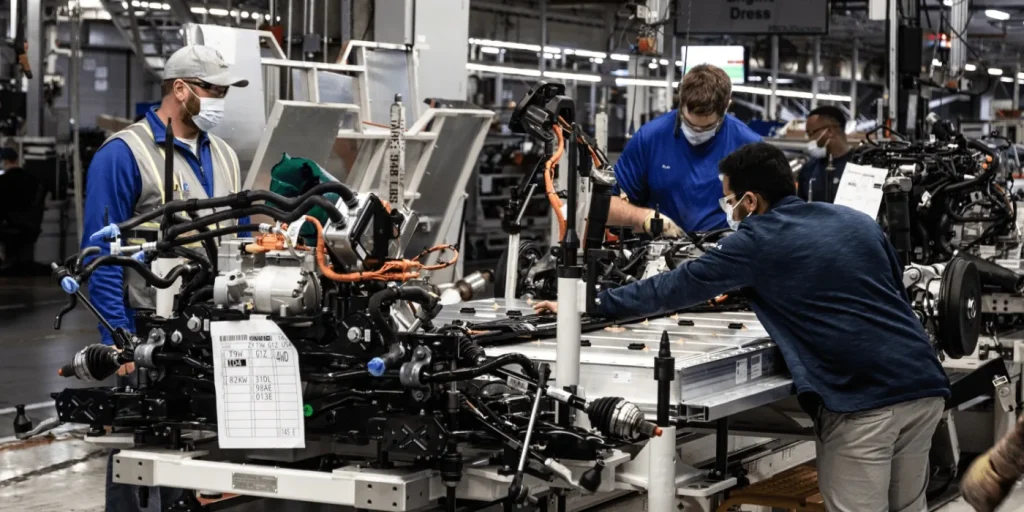US President Donald Trump has amended his administration’s 25% tariffs on imported automobiles and parts, introducing exemptions. Effective from 29 April 2025, the revised measures provide financial relief to automakers assembling vehicles within the United States.
The revised measure, effective immediately, offers financial relief on the 25% tariff previously imposed on imported automobiles and parts. Under the amended policy, auto manufacturers assembling vehicles in the U.S.—including electric vehicles—will be eligible for offsets of up to 3.75% of the Manufacturer’s Suggested Retail Price (MSRP) in the first year, falling to 2.5% in the second.
However, the relief is contingent upon the level of domestic content in vehicles. For instance, a vehicle with 85% US or USMCA (United States-Mexico-Canada Agreement) content would effectively be exempt from the tariffs, while one with 50% domestic content would still incur duties on a portion of its value. The administration has also warned of strict penalties for importers who claim tariff reductions beyond approved amounts.
It needs to be noted that the previously announced additional tariffs on auto parts will still take effect on 3 May. Also, the exemptions only apply to ‘automobiles that undergo final assembly in the United States’, the executive order states. It does not include auto part manufacturers. Moreover, Trump’s tariffs on China – on top of tariffs on autos and parts – also stand. Nevertheless, the goal is to give carmakers time to find new domestic manufacturers.
The new exemptions are retroactive to when tariffs first took effect at the beginning of April. However, it is not clear how carmakers will get their reimbursements or where the funds will come from.
While not exclusive to EVs, the exemptions have clear implications for electric mobility. Domestic EV producers such as Tesla and Rivian are likely to benefit directly, while global automakers with U.S. factories—including Hyundai, Volkswagen, and BMW—could leverage these exemptions by increasing localised EV production. However, EVs relying heavily on imported battery packs or components from China or the European Union may still face partial tariff exposure.
Moreover, critics argue the move may fragment global EV supply chains and introduce uncertainty for foreign automakers. European firms such as Volvo and Mercedes-Benz, both heavily reliant on imports, have warned that tariffs could drive up costs per vehicle significantly – price hikes likely to be passed on to U.S. consumers.
The policy change comes in response to concerns from automakers and industry stakeholders about the potential negative impacts of the original tariffs. Companies like Ford and General Motors have expressed support for the revised measures, noting that the exemptions will provide much-needed flexibility as they adjust their supply chains.
“Ford welcomes and appreciates these decisions by President Trump, which will help mitigate the impact of tariffs on automakers, suppliers and consumers,” Ford Chief Executive Jim Farley said in a statement, the Wall Street Journal reports.
Mary Barra, chair and chief executive officer of General Motors, said: “We appreciate the productive conversations with the President and his Administration and look forward to continuing to work together.”
Despite the adjustments, foreign automakers remain concerned. European brands such as Porsche and Volvo have indicated that the tariffs could lead to significant price increases for US consumers, with estimates ranging from $4,000 to $12,000 per vehicle. These companies, which rely heavily on imports, may be forced to pass on the additional costs to buyers or reconsider their presence in the US market.
whitehouse.gov (fact sheet), whitehouse.gov (executive order), wsj.com, cnbc.com, businessinsider.com (Europe)

